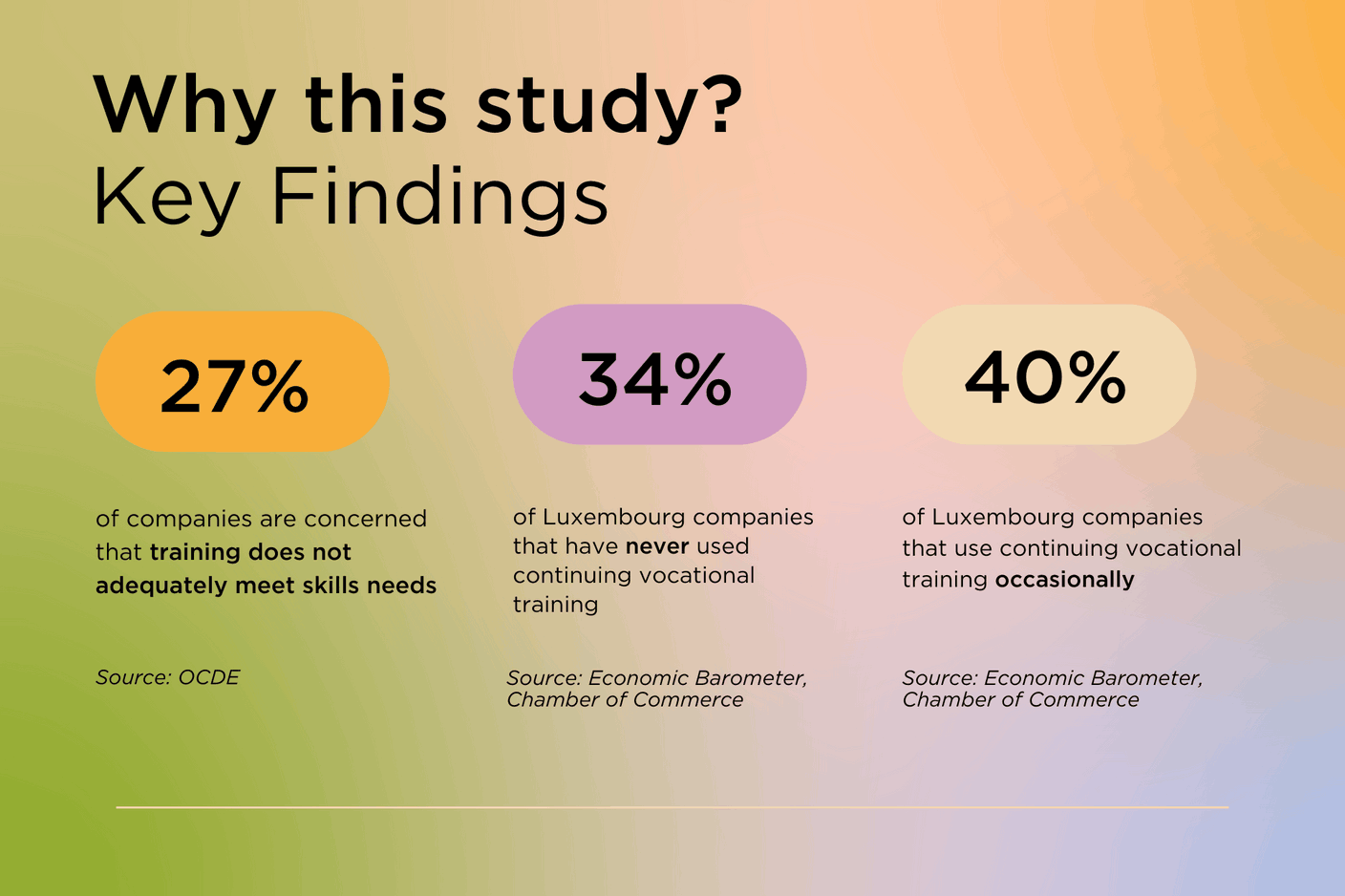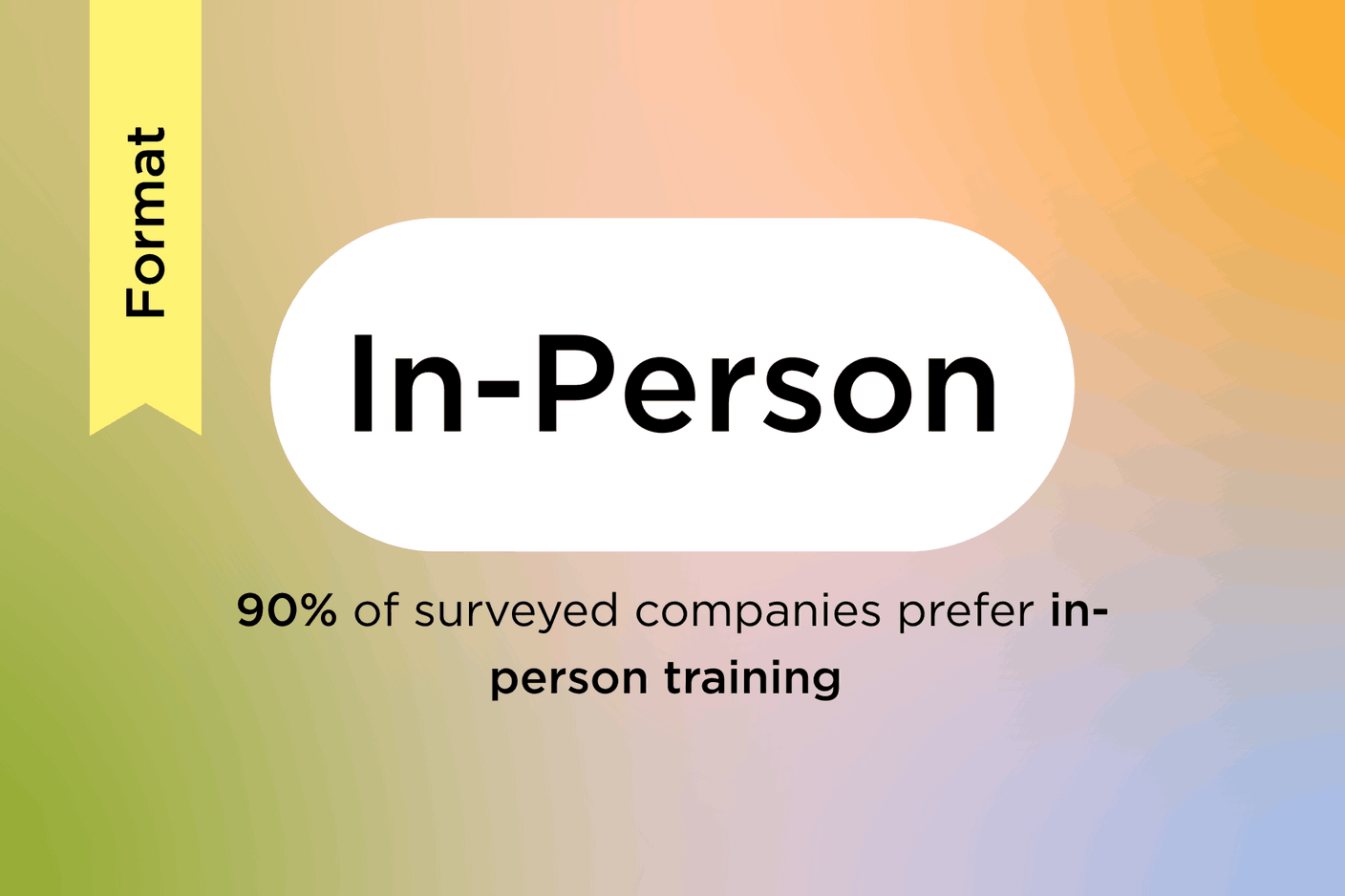At the same time, three advisory committees were launched in early 2025 with HR managers from different sectors to collectively refine skills needs and co-develop appropriate solutions.
This initiative is fully in line with the mission of the House of Training: to facilitate the development and strengthening of skills in companies by identifying current and future challenges in the labour market and supporting these companies in their development through training programmes and plans tailored to market needs.
Disparate training practices
Face-to-face training remains the preferred format for more than 90% of companies. It facilitates peer-to-peer exchanges and encourages the practical application of learning.
Internal training is used by one in two companies, mainly to develop technical and professional skills. It promotes internal experts, allows content to be adapted to changes in the organisation, encourages the transfer of company-specific knowledge, and integrates technical, process or product-specific features.
Some key figures:
- Only 43% of respondents identify managers as requiring training, even though they play a key role in promoting a culture of training within companies.
- One-third of companies train their employees for more than 10 hours per year.
- 40% of the companies surveyed train less than 25% of their workforce.
- One in ten companies does not offer any training to its employees. Small companies tend to provide less training due to a lack of staff.
Obstacles remain
The study reveals that the current training provision is perceived as moderately adequate in relation to the specific needs of companies, with an overall score of 6/10. However, this perception varies between sectors.
The financial sector rates the provision more positively, with an average score of 7.5/10.
In contrast, in other sectors such as manufacturing, commerce and hospitality, the provision is considered less suitable, often perceived as too general or out of touch with the realities on the ground.
Regulatory training accounts for a significant proportion of training time in some sectors, sometimes limiting access to more strategic or cross-disciplinary courses.
Among companies that have identified barriers to training, 40% cite lack of time as a major constraint.
Stronger consultation with sectors
To identify the source of these gaps and refine the needs of each sector, in 2025 the House of Training launched three sectoral advisory committees bringing together training and human resources managers from the education, industry and trade and distribution sectors.
These commissions brought together more than 25 companies, representing some 40,000 employees. These forums for discussion confirmed a strong demand for technical and behavioural skills. In terms of soft skills, companies often use external training and have expressed a need to better adapt it to the specific characteristics of their sector.
Training to adapt to the market
According to the companies surveyed, two elements are essential to the quality of training: the competence of the trainers and the relevance of the content to the identified needs.
In a changing environment characterised by linguistic and cultural diversity, the internationalisation of talent and intergenerational coexistence, training is becoming a strategic lever.
The study identified the following priorities for companies:
1. Upskilling
2. Regulatory compliance
3. Personal development to support behavioural and managerial changes.
Training thus contributes to the attractiveness of the company, talent retention and the strengthening of the employer brand and the employability of employees.
Adapting training to the realities on the ground is becoming essential in order to respond effectively to economic and sectoral changes.
Discover our training offer or build a tailor-made skills development plan for your company on our .
















